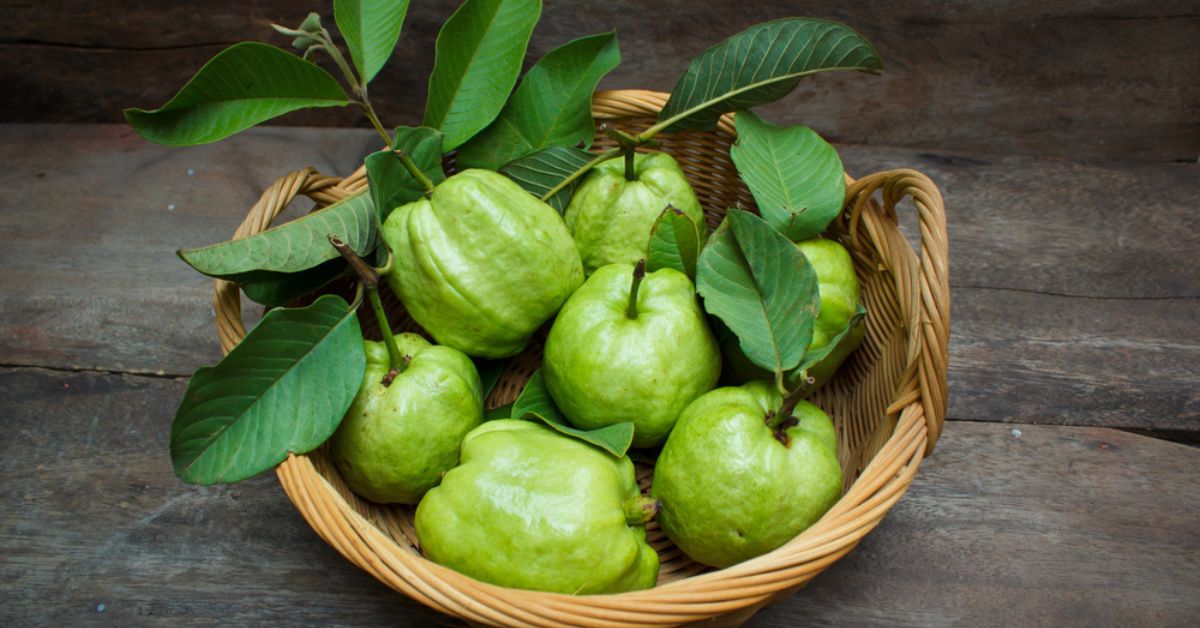For me, eating sliced ripe guavas sprinkled with a pinch of salt and chili powder brings with it an overwhelming sense of nostalgia. There was a time when this was my daily snack at home, and we’d pick the berries from the lonely guava tree in our backyard until there were none left.
My grandmother encouraged us to eat the fruit with the seeds and peel, which she said were as nutritious as the fruit pulp. She would do so with a stern warning to rinse the fruit well before consuming it.
Guava, a tropical fruit Originating from Central America, it is believed to have been brought to India by the Portuguese in the early 17th century. These fruits, which come in numerous varieties, are loaded with nutrients.
They are a rich source of vitamin C, vitamin A, potassium, manganese and antioxidants. They are low in calories and rich in protein and fiber. Minerals like zinc, calcium, and iron are also present in smaller amounts, making it the perfect healthy addition to your daily diet.
Several studies claim that guavas are good for boosting immunity, helping control diabetes, promoting good heart health, help weight lossand have anti-aging properties.
And it’s not just the pulp of the fruit that has benefits to offer. Research shows that the seeds, husk, and leaves have various merits.
Guava leaf extract has been part of traditional medicine in different parts of the world. For example, Japan brews guava leaves to make an herbal tea with medicinal properties.
“These leaves are a powerhouse of antioxidants like vitamin C and flavonoids like quercetin,” Delhi-based nutritionist Anshul Jaibharat T told NDTV.
This is why you should also make tea with guava leaves:
1. Manage blood sugar levels
Scientific studies have found that guava leaf extract has properties that improve blood sugar levels and help control blood sugar in the long term, as well as control insulin resistance.
Drinking guava leaf tea after meals was also found to reduce blood sugar spikes by moderating glucose absorption (by inhibiting the absorption of two types of sugars, namely sucrose and maltose). The leaves also inhibit several enzymes that convert carbohydrates to glucose during digestion, which would be helpful for people with type 2 diabetes mellitus.
2. Helps in the treatment of diarrhea.
In different parts of the world, guava leaf tea has been used in traditional medicine to control conditions such as diarrhea. According to several laboratory studies, diarrhea was found to be cured rapidly after administration of guava leaf tea, which inhibited the growth of staphylococcus aureus bacteria, a common cause of diarrhea. It also helps relieve abdominal pain and reduces watery stools.
3. Helps lose weight
Guava leaf extract has the ability to inhibit different enzymes that convert carbohydrates into glucose, thus promoting weight loss. Also, it is low in calories and thus works as a good substitute for high sugar drinks.
4. Antimicrobial properties
Studies point to the antibacterial and antifungal properties of guava leaf extract. Various compounds in the leaf, including flavonoids, tannins, and acids, contribute to antimicrobial properties and help treat gastrointestinal problems.
5. Lowers cholesterol
According to some laboratory studies, guava leaf tea was found to have the ability to help lower LDL (low-density lipoprotein) cholesterol, also known as “bad cholesterol,” as well as triglycerides, while maintaining good cholesterol on balance.
According to a study published in ‘Nutrition & Metabolism’ in February 2010, people who drank guava leaf tea had lower total cholesterol, low-density lipoprotein, and triglyceride levels after eight weeks, whether they received or no medical treatment to lower your cholesterol. levels
6. Boost immunity
As a rich source of vitamin C, guavas help boost immunity or maintain a healthy immune system. Its antimicrobial properties also help prevent different types of infections caused by bacteria and viruses.
7. Relieves menstrual cramps
One study found that drinking guava leaf tea during a woman’s period helped reduce painful cramps. The study also notes that guavas were effective or more potent than some pain relievers.
Here is a recipe to make the healthy tea:
- Wash four large fresh guava leaves (for one)
- Heat a cup of water in a saucepan and add guava leaves to it.
- Let it boil for five minutes.
- Strain the leaves and squeeze half a lemon into the water.
- Add a little honey to taste.
- Mix it well.
Sources:
*Antihyperglycemic and antihyperlipidemic effects of guava leaf extract, by Yoriko Deguchi and Kouji Miyazaki; published in Nutrition & Metabolism on February 2, 2010.*
Health effects of Psidium guajava L. leaves: an overview of the last decadepublished by the National Center for Biotechnology Information on April 24, 2017.
Guava leaves (Psidium guajava L.): nutritional composition, phytochemical profile and health-promoting bioactivitiespublished by the National Center for Biotechnology Information on April 1, 2021.
Effect of an extract of Psidii guajavae folium in the treatment of primary dysmenorrhea: a randomized clinical trialpublished by the National Center for Biotechnology Information on October 13, 2016.
Guava Health Benefits, by Neha Pathak; Posted by WebMD on September 17, 2020.
15 amazing benefits of guava leaf teapublished by NDTV Food on April 21, 2020.
8 Health Benefits of Guava Fruit and LeavesPosted by Healthline.
Edited by Divya Sethu
